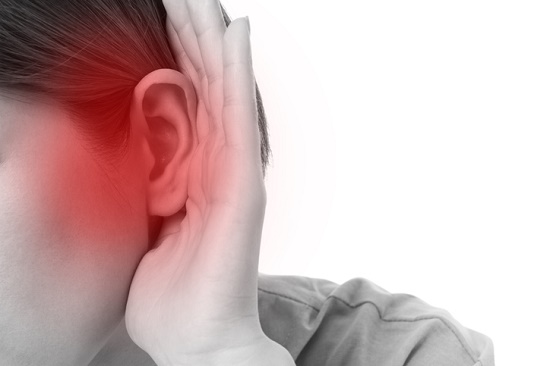
Hearing loss is only an issue for older people, right?
Not quite. While it’s true that your odds of acquiring hearing loss increase with age, you can, in truth, develop hearing loss at any age.
According to the NIDCD, 26 million Americans age 20 to 69 have high-frequency hearing loss from being exposed to loud sounds at work and during leisure activities. And that includes 1 in 14 generation Xers, age 29-40, who already have hearing loss.
Seeing that hearing loss can hit at any age, it’s critical to understand the signs as they’re frequently subtle and tough to notice.
Below are 8 silent signs of hearing loss that should prompt you to book a hearing test.
1. Ringing in the ears
Have you ever arrived home from a noisy live performance and observed a ringing or buzzing in your ears?
If so, that indicates you’ve damaged the nerve cells of hearing in your inner ear. If it’s only taken place a couple of times, the damage is probably temporary and modest. But continual exposure or one-time direct exposure to very loud sounds could produce permanent damage and hearing loss.
If you continue to hear ringing in your ears, you should book a hearing test as this is one of the first signs of hearing damage. And if skipping upcoming live shows is not a possibility for you, your hearing professional can help you avoid additional injury with custom-fit earplugs.
2. Balance issues
Your hearing and balance are intricately linked. In fact, a large component of your ability to stay balanced is a consequence of sophisticated structures within the inner ear.
If you detect that you’ve been more clumsy lately, the problem may actually be with your ears. In fact, a study by Johns Hopkins University determined that those with hearing loss were three times more likely to have a history of falling, depending on the degree of hearing loss.
3. Memory problems
Your short-term or working memory is very limited, able to cope with only a few items for a short time frame. That indicates you don’t have time to catch up on missed words during fast moving conversations.
With hearing loss, speech comprehension suffers as you can entirely miss or misinterpret the speaker’s words or message. This manifests later on when you can’t remember important information.
4. Painful sounds
When you lose your hearing, you may become excessively sensitive to specific sounds, to the point where they cause pain or discomfort.
The scientific term for this is hyperacusis, and you’ll want to contact a hearing professional if the issue continues or becomes intolerable.
5. Listening fatigue
Just imagine spending the day trying to decipher meaning from half-heard words and sentences and replying to questions you didn’t fully hear. That amount of attention can wear you out fast.
If you discover that you’re far too tired at the end of the day, hearing loss may be to blame.
6. Trouble hearing in groups
Early stage hearing loss usually doesn’t present itself during one-on-one conversations or in quiet settings. More commonly, hearing loss only becomes a problem in the presence of background noise or in group situations.
7. Not hearing alarms or calls
Hearing loss is generally hard to notice or identify as it builds up incrementally each year. Oftentimes, friends and family members will notice the hearing loss before the person suffering from it does.
However, there are some warning signs you can watch for, including the inability to hear alarms or calls, the doorbell, or the TV at normal volume.
8. Difficulty hearing movie dialogue
With hearing loss, you may have particular difficulty hearing the dialogue in tv shows and movies. That’s because most instances of hearing loss impact high-frequency sounds to the highest degree, and speech is a high-frequency sound.
It’s never too soon to care for your hearing health. If you experience any of these symptoms, schedule a consultation with your local hearing care professional.
